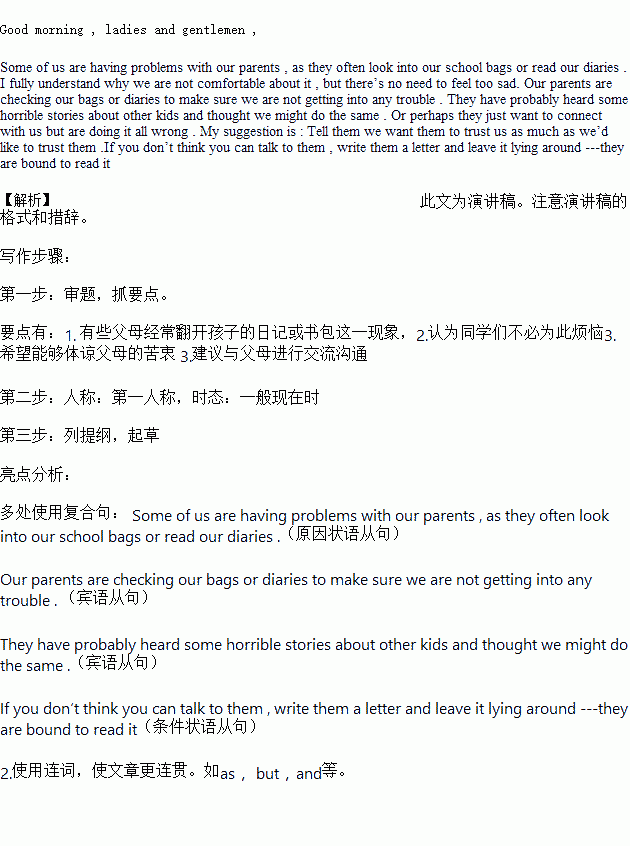题目内容
假设你正在参加全省中学生演讲比赛,请你针对有些父母经常翻开孩子的日记或书包这一现象,写一篇演讲稿,陈述你的观点。 内容包括:1.认为同学们不必为此烦恼 2.希望能够体谅父母的苦衷 3.建议与父母进行交流沟通
Good morning , ladies and gentlemen ,
___________________________________________________________________________________________________________________________________________________________________________________________________________________________________________________________________________________________________________________________________________________________________________________________________________________________________________________________________________________________________________________________________________________________________________________________________________________________________

